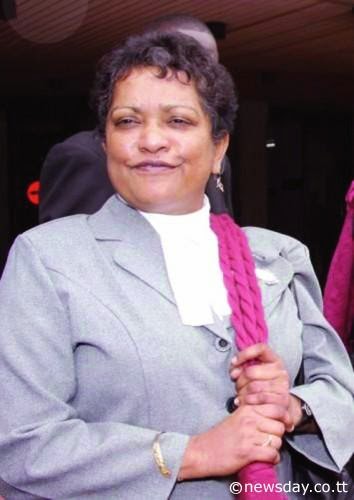Barbados Is NOT An Independent State
By Pachamama
It’s once more the time of year when the elites in Barbados automatically instigate actions of petite nationalism that are said to be consistent with an independent state/actor. However, when one examines the existential realities within either the political, economic, social or technological spheres a very different judgment could be made. Over the years many of us have presented arguments for a very different kind of nationalism, a different kind of Barbadianness. A nationalism that presents a Barbadian that comes from a longer history and that elevates the place of the indigenous peoples within our collective imaginations. A nationalism, which recognizes the indigenous people that have lived on this here land from the time before time - long before the invasions of Columbus. A nationalism that is not so wedded to the former colonial masters that it is near impossible to property understand our past, alter the present and shape a self-determined future. A nationalism, which is unafraid to have a predominately Afrocentric view of itself. A nationalism that once and for all deals with the ambiguities of the past, including issues of land reform, reparations, race and class as a gateway to better understanding the present circumstances and most importantly accurately predict the future.
The economic structure of an ‘independent’ Barbados was still so distorted, after 162 years of ‘emancipation’, and before the free market, Washington consensus ideology of the last twenty years that it could have assisted in the emergence of a preponderance of minorities in achieving an inequitable accumulation of capital resources. We are talking about people like Cow Williams, Kiffin Simpson, the Lebanese community, the Syrian community and the East Indian community etc. This acquisition is linked to the eternal tendency of capital to consolidate itself into fewer and fewer hands and that is inconsistent with real nationalism which is the crucial economic democracy issue of our times. African peoples everywhere, having been disconnected from their resources and then forced to contribute free labour for over 200 years are most affected. The history shows that people like Williams and Simpson were poor whites and would not have been the direct beneficiaries of the globalization of slavery within the plantation system. However, the national parliament of Barbados passed a series of preferential laws to economically empower Barbadian poor whites. We also now know that it was Errol Barrow who empowered Williams and Simpson and gave them opportunities not available to all other Barbadians. Subsequently, prime ministers like Arthur, Sandiford, Adams and St. John have ratified this illegal and immoral act of Barrow. Now Cow Williams is said to own about 20% of the arable land in Barbados. Simpson is a multi-multi-millionaire but no political leader in Barbados is ever going to talk about land reform or reparations even if the historians can trace the ill-gotten gain from the slave project into the hands of Barbadian whites alive today.
We have judged that the current Prime Minister best represents the notion that any Barbadian should be eligible to serve in the highest political office in the land. And while it seems that he brings the general philosophy of Diogenes to the institution and who, we are sure, has many other admirable qualities, we are not however persuaded that he is prepared, and he may consider that the time may not be proficious for him to institute radical transformation - a transformation whose time is too long in coming. Such a transformation may be our best chance to overcome the political stagnation that Barbados and other Westminster systems are now experiencing - a stagnation that could lead to political death. It may be too much to ask the Prime Minister to transform the civil service culture that supports a distortion in the distribution of resources to the elites. We do not expect Stuart to introduce real horizontalism; remove the Queen as Head of State; remove the vestiges of colonialism – knighthoods, QC’s, rename streets and highways, transform the education system and abolish the eleven plus exam; revisit the pantheon of national heroes to make sure that only the people/person who died in the struggle for real independence are/is represented. Few would expect this former (professional) historian to approach the redistribution of real wealth, in concrete terms, as consistent with the demands of the peoples of the earth and which renewed demand may soon arrive in Barbados. Fewer would expect Stuart to ignore the misguided advice of his economic advisors which is predicated upon the continued existence of or amelioration in the post World War II economic architecture led by ‘banksters’ and which, we are persuaded, is dead or at least receiving intensive care. Fewer still would expect the Prime Minister to even consider a strategic default as a tactic to gain national sovereignty because elements of our national debt may be deemed as odious, largely incurred by the Owen Arthur regime, and may rise to unsustainable levels that may soon be unrepayable.
The growing absence of political and economic independence will inevitably lead to social dislocation. We now know that it was the American secret agencies that quietly forced the British out of these islands in a manner that was to become characteristic of the behavior of Empire – an Empire that sought control with little responsibility, unlike the British or French. We therefore judge that Barbados’ pretense of independence continues under an American Empire where certain submissive behaviors are expected. Let’s consider Barbados’ relationships with countries the United State dislikes. Though Barbados has official relationships with the Bolivarian Republic of Venezuela and other Spanish speaking countries, one is hard-pressed to discern any space in Barbados for the radical and just transformation as happening in Bolivia, Ecuador, Nicaragua and elsewhere in the wider region. The same is so for the rest of the ‘English speaking’ Caribbean. The guardian from the north would not countenance relationships with Iran, early Khadafy’s Libya, North Korea and other countries that try to determine an independent path. A path that is truly independent of American global finance capital. To its credit Barbados defies Empire and votes almost every year in favor of Palestine, the ending of pernicious sanctions against Cuba and so on but spends most of its time never forgetting who the real master of the universe is. This attitude means that an ‘independent’ Barbados is to be silent when imperial forces invade, subvert or militarize its neighbors in the Caribbean and South & Central America. Does our relatively peaceful history not present us with an opportunity to play a larger role on the world stage? An independent role beyond the teeter of Uncle Tom.
From whence will the technology for transformation come in the case of Barbados? Are we to await the emergence of another world power before we fundamentally jettison the dying Anglo-American system? Where is our developed and collective imagination or will we continue to hide behind negative slogans about smallness and the eternal dependence on others? Why is it not possible to deploy Barbadians abroad in a war for economic survival in an information age? The political mismanagement that has led the degenerated into the brave new world of Huxley sees Barbados threatening to become the party capital of the Caribbean. On the other hand, it is technology that brought us mitochondrial DNA which has confirmed that nearly 100% of Barbadians regardless of race, original country origin and pigmentation have a mix of African, Scottish, British, Irish and other European ancestry.
We consider that Barbados has made some progress in the 45 years of having a different type of relationship with Britain. However, the present and future challenges are unlikely to be responsive to remedies of yesteryear. Given these circumstances, we contend that radical transformation is a necessary precondition for the country to make progress. Economic progress, in the future, may not be well measured by current economic metrics. Progress as an economic indicator may best be determined as the measure of wealth redistribution in favor of the dispossessed. Transformation of the political culture must mean the elimination of a system that produces elected dictators. We must then establish a system that is closer to direct democracy - a system where moneyed interests have no sway - a system where ordinary people are at its centre. Only an independent country could dream of promoting these levels of interdependence and national cohesiveness.
Pachamama



Comments